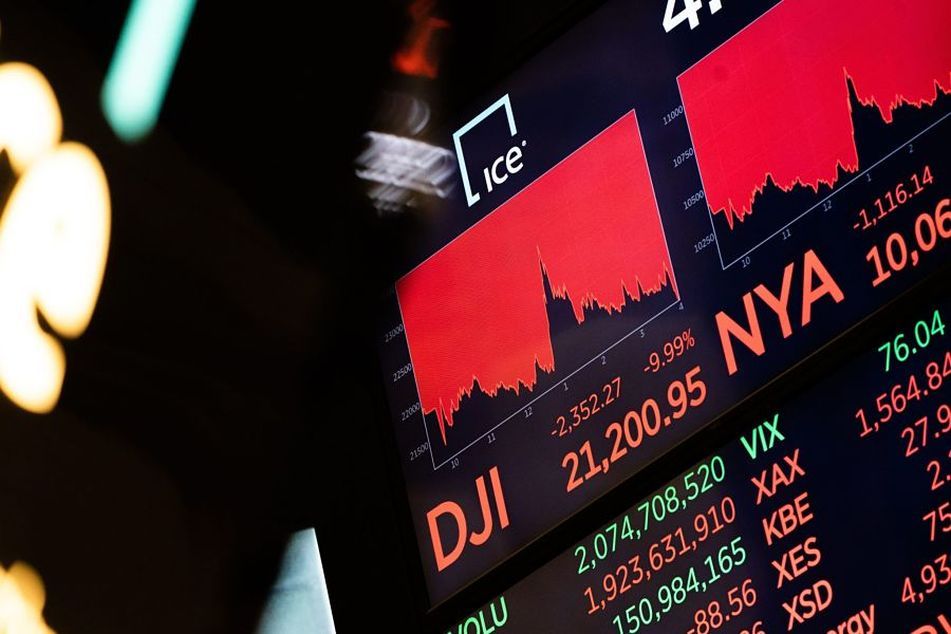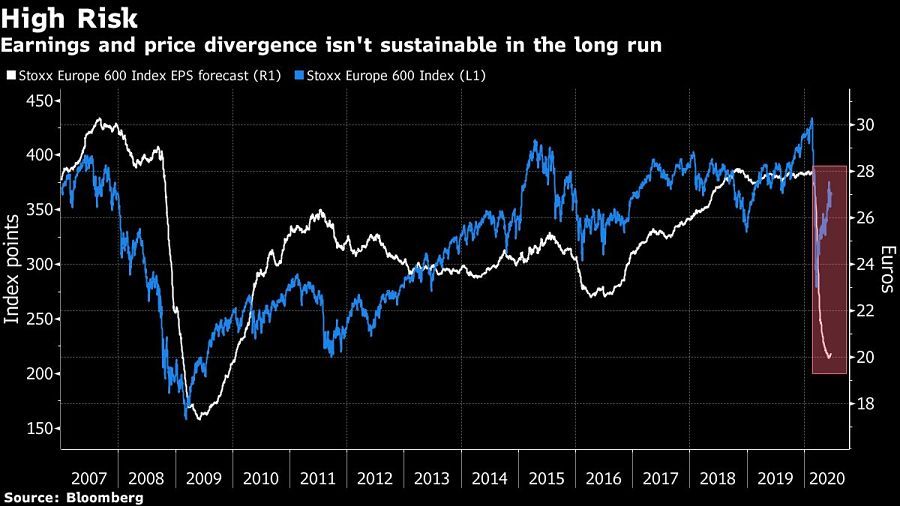Rising global risks could challenge market exuberance

Threats to the equity rally include a COVID second wave, U.S.-China tensions and the prospect that central banks will wind down their stimulus efforts
Markets may be headed for a wake-up call as scenarios that investors brushed aside to fuel a global rally move closer to reality.
Those scenarios include seeing the rate of COVID-19 infections pick up in nations that have eased lockdowns, the growing tension between the U.S. and China and faltering corporate finances. The number of defaults in China’s dollar bond market is climbing and second-quarter earnings are just around the corner.
“I would add the growing realization that the official stimulus pipeline that has been feeding the risk rally is drying up,” said Valentin Marinov, head of Group of 10 foreign-currency strategy at Credit Agricole. “It’s a matter of critical mass of bad news that could tip the rally over and investors turn defensive again.”
The brief but sudden drop in stocks in Asian trading Tuesday after White House adviser Peter Navarro sowed confusion over the U.S.-China trade deal is evidence that, despite the trillions of dollars in stimulus being pumped into global markets, risk sentiment may be fragile. Rabobank’s Michael Every described the jolt as a “a taste of things to come.”
YEN CALM
“It’s concerning how few tail risks are priced stemming from a second wave, the U.S. presidential election and a hard Brexit,” said Jordan Rochester, a Group of 10 currency strategist at Nomura International.
Before Tuesday’s knee-jerk reaction in markets, stock and currency volatility had fallen to levels last seen before the virus, and the Japanese yen — a globally recognized haven — dropped below its five-year average, having underperformed almost all its Group of 10 peers this quarter.
The gap between the Stoxx Europe 600 index and profit forecasts for its members is near the widest on record. Markets are on tenterhooks for second-quarter results, which will indicate how badly lockdowns have hurt companies. And bears have been retreating from the British pound, even as the prospect of a no-deal Brexit looms.

But the big risk that isn’t priced in “is policy makers potentially slowing down the stimulus,” Rochester said. Those measures have helped high-yielding assets advance despite a plethora of negative data this quarter.
Bank of England Governor Andrew Bailey said in a Bloomberg Opinion article Monday that the financial system mustn’t become reliant on these extraordinary levels of reserves, with some monetary stimulus needing to be withdrawn as economies recover. Preliminary June manufacturing data from the U.K. and France signaled industry moving back into expansion mode.
The BOE last week announced it would complete its asset-purchase program around the turn of the year, which could put further pressure on financial markets. Meanwhile, Federal Reserve data showed that its balance sheet contracted 1%, the first drop since late February.
TAKING PROFIT
Markets may be starting to acknowledge a slower recovery, with stocks of companies that benefit from workers staying at home — such as Netflix Inc. and Amazon.com Inc — doing well on Monday, and gold prices rosing for a third day Tuesday.
“We have been taking profit,” said John Taylor, who manages $6.6 billion at AllianceBernstein in London and bought corporate bonds in April. “I wouldn’t only worry about a second wave of COVID and any reversal of lockdown, but also how the economy holds up as governments start to ease back on the support.”
Learn more about reprints and licensing for this article.








